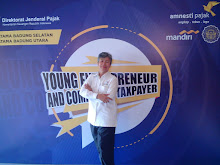The City and Guilds of London Institute (City & Guilds) is a vocational education organisation in the United Kingdom. City & Guilds offers more than 500
qualifications over the whole range of industry sectors through 8500 colleges
and training providers in 81 countries worldwide. Two million people every year
start City & Guilds qualifications, which span all levels from basic skills
to the highest standards of professional achievement (Honours, Master and Post
Doctorate levels equivalent).
Founded on November 11, 1878 by
the City of London and 16 livery companies, the traditional guardians of
work-based training, to develop a national system of technical education, City
& Guilds has been operating under
Royal Charter (RC117), granted by Queen Victoria, since 1900. The Prince of Wales later King Edward VII was then appointed the first President of the
Institute.
City & Guilds is a registered charity (no.
312832). The Institute's president is now HRH The Princess Royal who
accepted this role in June 2011 (following her father HRH The Duke of Edinburgh
who held the position for nearly 60 years), and the current Chairman of Council
is Sir John Armitt, took office in November 2012.
Vocational
qualifications
City & Guilds continues as an examination
board offering a large number of qualifications mapped onto the British National Qualifications
Framework (NQF). The most common are the vocational qualifications,
from Entry-level to Level 3.
- Entry-level qualifications are the real basics, for absolute beginners.
- Level 1 qualifications are introductory awards, covering basic tasks and knowledge.
- Level 2 is slightly more advanced, needing some knowledge of the subject area.
- Level 3 qualifications cover more complex tasks and also start the development of supervisory skills. In many professions, level 3 is the benchmark to be considered competent.
These qualifications are mapped onto Qualifications
and Credit Framework (QCF). QCF has
been replaced by the RQF (Regulated Qualification Framework). Change from QCF
to RQF.
Ofqual have requested that all awarding
organisations must remove references to QCF from their websites, qualification
titles and documents. This must be completed by the 31 December 2017. Part of
the new RQF is the requirement for all qualifications, that will be open to
registrations post 31 December 2017, to have TQT (Total Qualification Time)
allocated to them. The deadline for this is also the 31 December 2017.
TQT is comprised of the following two
elements:
- the number of hours which an awarding organisation has assigned to a qualification for Guided Learning, and
- an estimate of the number of hours a Learner will reasonably be likely to spend in preparation, study or any other form of participation in education or training, including assessment, which takes place as directed by – but, unlike Guided Learning, not under the Immediate Guidance or Supervision of – a lecturer, supervisor, tutor or other appropriate provider of education or training.


Tidak ada komentar:
Posting Komentar